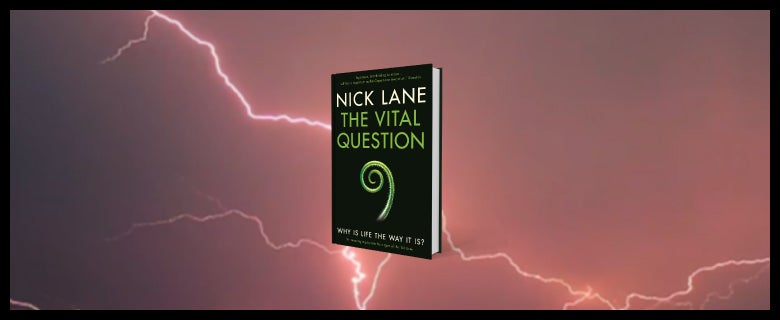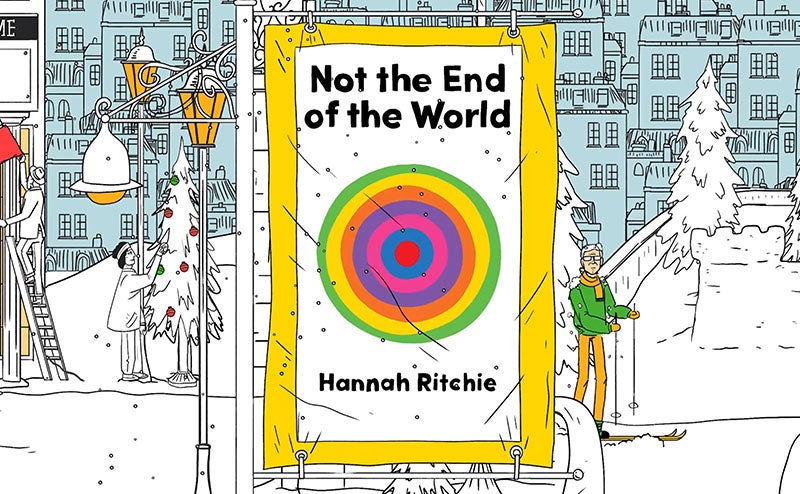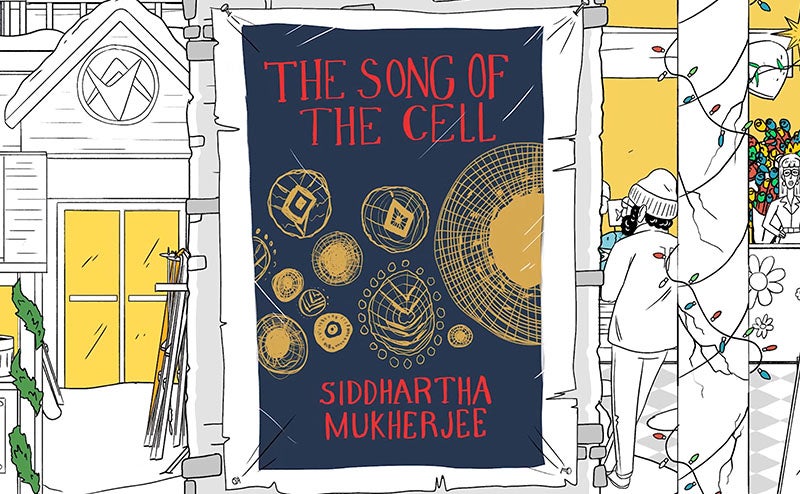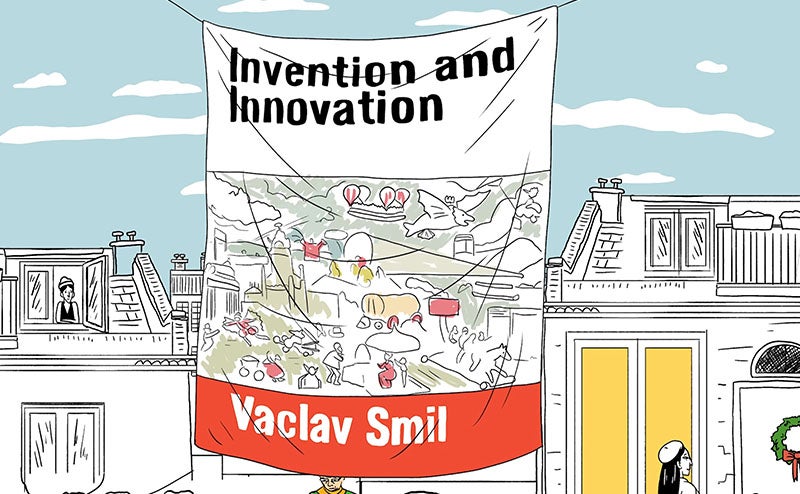Last year Trevor Mundel, who runs our foundation’s global health work, suggested that I read a book called The Vital Question. I had never heard of the book or its author, a biologist at University College London named Nick Lane. A few months later, I hadn’t just read —I had also ordered Nick’s three other books, read two of them, and arranged to meet him in New York City.
Nick reminds me of writers like Jared Diamond, people who develop a grand theory that explains a lot about the world. He is one of those original thinkers who makes you say: More people should know about this guy’s work.
At its heart, Nick’s work is an attempt to right a scientific wrong by getting people to fully appreciate the role that energy plays in all living things. The Vital Question begins with a bang: “There is a black hole at the heart of biology.”(I wish more science books got off to such a ripping start.) “Bluntly put, we do not know why life is the way it is. All complex life on earth shares a common ancestor, a cell that arose from simple bacterial progenitors on just one occasion in 4 billion years. Was this a freak accident, or did other ‘experiments’ in the evolution of complexity fail?” Why does all complex life—every plant and animal you can see—share certain traits, like getting old and reproducing via sex? Why didn’t different types of complex life evolve? And if there is life on other planets, would it necessarily have these same traits? Or could E.T. reproduce by cloning himself?
Nick argues that we can only start to answer these questions by fully appreciating the role of energy.
In a way, he’s putting a different spin on an issue I’ve been writing a lot about lately. I’ve been talking about how getting energy right at the global level—developing affordable, reliable sources of clean energy—will help us fight poverty and climate change. Nick is talking about how getting energy right at the cellular level explains how life began, and how it got so complex.
Early on in The Vital Question, he explores the latest thinking about the origin of life. Bacteria and another type of single-celled organism called archaea seem to have developed about 4 billion years ago, thanks to an energy differential in alkaline vents deep in the ocean. Nick’s account of how that happened is thrilling. He builds on the work of others, adding his own research, and explains it in a way that is so compelling that it’s hard to imagine any other way. It’s not what most of us learned in school—there is no primordial soup involved—and it’s a gripping tale.
For the next two billion years, bacteria and archaea were the only forms of life of Earth. Then an exceptionally rare thing happened. A bacterium worked its way inside an archaeon and survived. The bacterium became an endosymbiont, one living thing inside another, each benefiting from something offered by the other.
This merging of cells had probably happened before and since, but it is always highly unlikely to succeed. Most of the time, both cells die. “The one occasion where it really worked out,” Nick says, “is what led to us.”
How? The bacterium contributed some of its genes to what became the nucleus of the cell. The leftovers became mitochondria, which act as tiny power plants for every form of complex life we know about. And they are one of the key things that differentiate us from bacteria and archaea.
Here’s one reason why. Simple cells like bacteria generate all their energy in their outer membrane, which puts a physical limit on how big they can get and still make enough energy to support themselves. (In mathematical terms, their volume expands faster than their surface area, so their demand for energy eventually exceeds their ability to generate it.) Once cells had internalized the means of making energy—that is, once they had mitochondria—this constraint disappeared. Mitochondria also have specialized genomes focused on energy generation, but bacteria don’t. So cells with mitochondria could get much bigger, allowing for complex new arrangements.
“If E.T. wants to have kids, he’ll need Mrs. E.T.”
In The Vital Question, Nick goes on to show how energy can help explain why life is the way it is. He makes a persuasive case that complex life must have the traits we see today. And he argues that it would almost certainly develop the same way everywhere. Which means that, if we find complex life on other planets, it will quite likely share the same traits. In other words, E.T. can’t clone himself. If he wants to have kids, he’ll need Mrs. E.T.
Back on Earth, I’m intrigued by the practical applications of Nick’s work. Mitochondria could play a role in diseases like cancer. In addition, our foundation’s global health team is talking to Nick about the potential implications for the fight against malnutrition.
Nick has a very scientific demeanor. In reading his books and talking to him, I never got the impression that he was claiming more than he should or trying to pull a fast one on the reader. It’s always clear where he’s citing someone else’s work and where he’s building out his own ideas. And he would be the first to tell you that some of his ideas might be wrong.
As much as I loved The Vital Question, it’s not for everyone. Some of the explanations are pretty technical. But this is a technical subject, and I doubt anyone else will make it much easier to understand without sacrificing crucial details. He uses lots of vivid metaphors to explain key ideas. Every few pages he sums up what he has just said and recaps the important points. If you have a scientific bent and you remember a bit of chemistry and biology, you should find The Vital Question quite approachable.
If you’re going to read this book, do it relatively soon. Five years from now, Nick and the other researchers in this field will have gotten a lot further. Of course, there’s no telling whether his specific arguments will turn out to be right. But even if they don’t, I suspect his focus on energy will be seen as an important contribution to our understanding of where we come from, and where are we going.





